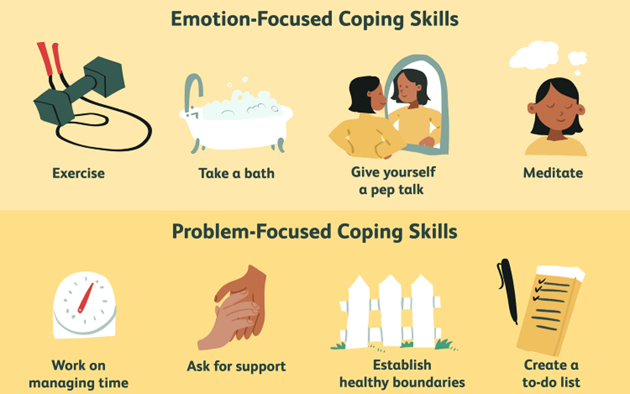Rn Hesi Mental Health
Rn Hesi Mental Health ( 38 Questions)
A client with depression does not want to communicate with friends, uses television watching as a means of escaping responsibilities, and describes the inability to handle personal circumstances. Which coping strategy should the nurse include in the plan of care?

Rationale:
While emotional expression and ventilation can be therapeutic, it may not be the most appropriate coping strategy for someone with depression who may already be overwhelmed by negative emotions. Ventilating emotions without a structured approach might not provide the desired relief and can even exacerbate feelings of distress.
Rationale:
This choice may not be suitable for someone with depression because it could lead to further neglect of their own needs and contribute to feelings of guilt or exhaustion.
Rationale:
While relaxation techniques can be helpful, reducing the effort to solve problems may not be the most effective strategy for individuals with depression. Avoidance of problems can perpetuate feelings of helplessness and hopelessness.
Rationale:
For a client with depression who is struggling with handling personal circumstances, focusing on small achievable tasks can be a helpful coping strategy. Breaking down larger problems into manageable steps can reduce feelings of overwhelm and gradually improve the client's sense of accomplishment and self-efficacy.
Choice A Rationale:
While emotional expression and ventilation can be therapeutic, it may not be the most appropriate coping strategy for someone with depression who may already be overwhelmed by negative emotions. Ventilating emotions without a structured approach might not provide the desired relief and can even exacerbate feelings of distress.
Choice B Rationale:
This choice may not be suitable for someone with depression because it could lead to further neglect of their own needs and contribute to feelings of guilt or exhaustion.
Choice C Rationale:
While relaxation techniques can be helpful, reducing the effort to solve problems may not be the most effective strategy for individuals with depression. Avoidance of problems can perpetuate feelings of helplessness and hopelessness.
Choice D Rationale:
For a client with depression who is struggling with handling personal circumstances, focusing on small achievable tasks can be a helpful coping strategy. Breaking down larger problems into manageable steps can reduce feelings of overwhelm and gradually improve the client's sense of accomplishment and self-efficacy.
